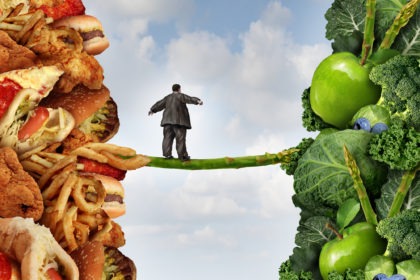Well, this past December marked the official 3 year anniversary of me being diagnosed with Type 1 Diabetes (T1D) and also the 3 year mark of managing the disease with no medication.
It’s been an incredible journey over the past few years, both with ups and downs. My blog has been a great forum to spread my message and help other people, but it’s also been a forum that has allowed me to learn from other people as well.
Since I have been diagnosed, I have logged my fasting blood sugar each morning for nearly 3 years, which is also the only time I test my blood sugar each day. You can click below to access my graph of fasting blood sugar results and quarterly A1c tests since I was diagnosed.
Last 3 Years Daily Fasting Blood Sugar and Quarterly A1c
My goal with this post is to write about my “Words of Wisdom”. Like anything in life once you get some experience, your management of something becomes more efficient and you just intuitively start to know what works and what doesn’t.
At this point I am in a rhythm and things are still going well. My blood sugars have remained relatively stable and I hardly even notice that I have the disease.
So, without further ado, below is my quick cheat sheet guide of what any T1D can expect that desires to try and get off of medication and leave the insulin ball and chain behind.
Words of Wisdom
#1 – This Isn’t Easy
Obviously if this was easy, there would be many more T1Ds like me. I personally now like eating a plant-based diet, but I am the minority. Society is tailored around an animal based diet and I am going against the grain. I think a vegan diet is becoming more en vogue with each passing year, but it’s a constant battle and is not for the faint of heart.
#2 – Not All T1Ds Can Do This
Unfortunately, not all T1Ds can remove themselves from medication through my diet. From my understanding, about 30% are able to. I am very fortunate to be one of the lucky ones. This said, the other 70% that can not completely get off meds can still drastically reduce the amount of insulin needed each day.
#3 – Drink This Each Day
Drink a scoop of this everyday – Vitamineral Green. It tastes terrible but it alone will noticeably lower your blood sugars. I started taking a scoop of this per day in November 2016 and right away my average fasting blood sugar dropped from 110 in the 30 days prior to 102 in the 30 days post taking it.
#4 – Alcohol Can Be Your Friend
Obviously alcohol is not a great thing for our bodies, however, a small to moderate amount almost always lowers my fasting blood sugars. I’d say 4 out of 5 times my fasting blood sugar is below 100 is a morning after I have some drinks. I typically drink red wine as an FYI. Tito’s vodka, or other potato vokdas, with club soda and a lime is a nice choice too.
#5 – Eat Raw Vegan for Breakfast and Lunch Everyday
In order to stay off of medication as a T1D a majority of what you eat will need to be low glycemic, vegan, uncooked (raw) foods. My breakfast is always the raw nut granola (recipe) and my lunch is always a salad. My dinners vary depending on what my wife is cooking, but they are almost always cooked and mostly vegan.
Rule of thumb is the more uncooked, organic, plant-based foods you eat, the lower your blood sugars will be.
#6 – Track Your Fasting Blood Sugars
At this point, the only time I check my blood sugars is each morning when I wake up before I eat anything. As long as this number is within that 90 to 120 range, I’m usually comfortable with everything.
Another added benefit is that I can usually predict what my A1c is going to be each quarter by taking my rolling 90 day average of my blood sugars. This takes alot of the stress out of the unknown.
If you download the iphone app called “Pocket A1c“, it quickly tells you what an average fasting blood sugar corresponds to what A1c level. Immediately before my A1c test, below are my last four 90 day fasting blood sugar averages, the Pocket A1c predicted A1c and then what my actual A1c was. As you can see, there isn’t much difference.
February 2016 (A1c testing month) – 108.8 (90 day rolling average fasting blood sugars at day of testing) – 5.3 (predicted A1c per Pocket A1c) – 5.6 (actual A1c)
May 2016 – 106.5 – 5.3 – 5.5
August 2016 – 108.2 – 5.4 – 5.7
November 2016 – 108.0 – 5.4 – 5.7
As you can see, it’s usually about 0.2 or 0.3 higher than what the pocket A1c predicts but very predictable.
#7 – Know That You are Better Off on this Diet
A plant-based diet is a major life-style change, and it’s hard. But you need to realize that you are better off on this diet, not just from a diabetes perspective, but from an overall health perspective.
I don’t know what blows my mind more, the healing power of a plant-based diet or the fact that no doctor in my 30 years prior to getting T1D ever told me about the profound effects that a diet can have on disease.
A plant-based diet has literally cured cancer in some instances that I’ve read about. I will assure you that a plant-based will 1) give you more energy; 2) make you think clearer; 3) make your vision better; 4) make your body ache less; 5) make you sleep better; 6) make you just feel better about yourself; 7) help you lose weight.
#8 – It’s All About the Diet
If you are a T1D trying to stay off of meds, it’s all about the diet. You can be a triathlete, but if you eat an animal based diet then you are headed for insulin. In contrast, if you eat a diet like mine and exercise moderately, you have a strong chance of staying off medication.
Some newly diagnosed T1Ds start going insane at the gym because their doctors tell them that exercise helps lower blood sugars. This is absolutely true, but exercise is only a small, but necessary, piece to the puzzle.
I’ve actually exercised my whole life 5-6 days per week, so I can’t provide a reference of my blood sugars in periods of no exercise. But, I can tell you during the fist year after diagnosis my blood sugars continued to rise to hazardous levels while I was on the animal based diet with my same exercise routine.
#9 – Juvenile Diabetes and My Diabetes are the Same Disease
I know some parents of T1D children get frustrated with my message, but please understand that I have the same disease as your child. I’m not an PHD on T1D, so there may be differences between me getting the disease at age 31 vs. getting it at age 7, but we both have an auto-immune disease doing the same damage to our bodies.
I realize it’s 10x harder to manage T1D in an adolescent vs. managing as an adult later in life, but please understand my methods can drastically reduce the amount of insulin that your child needs.
#10 – Think for Yourself
Please don’t look at the medical community as Gods. In my opinion, they are merely one reference point on how to manage disease. Most doctors are smart and well intentioned, but are purely trained on fixing you with medication.
Realize that in most instances food has healing power far beyond that of any medication that your doctor prescribes. Do your own research and pick a method at managing the disease that makes you comfortable regardless of what your doctor tells you.
#11 – You will Positively Affect the Lives of Others Around You
I sometimes write about how most of my family members still maintain their animal based diet lifestyles. However, I have noticed a meaningful amount of people that are close to me modify their diet to include more vegetables, less dairy, or other plant-based sources of food.
My diet and motivation to stay off of medications is not only to avoid sticking myself with needles and medication for the rest of my natural life, but also to try and make a difference in the lives of those who know me. Even if you merely stop buying dairy milk and start buying almond milk, my god this is such a step in the right direction.
#12 – It Will Turn Into More Than Just Staying Off of Medication
Building on my last point, staying off medication as a T1D is much more than just a simple choice. It represents a stance against the mainstream ideology that medicine is the way to fight disease. Maybe in extreme examples medication is necessary, but a proper diet can do wonders in preventing all sorts of disease.
I’m by no means an activist, but I have no problem standing up for what I believe. I personally avoid doctors at all costs unless I would have an emergency. I am hardly ever sick anymore and feel better than I ever have. Unfortunately, society seems to be set up to have a revolving door in and out of the doctor’s office.
#13 – This Could Work for Decades
I truly believe that I can be off of medication for decades, and possibly the rest of my life. I am committed to making my diet more strict if needed to ensure I stay off of medication. I guess I’m saying do not get discouraged when you doctor tells you that you are doomed. It’s not always true.
#14 – Not Everyone Will Agree
Not everyone that hears your story will agree with you. I will say that almost all T1Ds that know my story respect my message, but many just would rather be on insulin and eat the standard american sugary foods or steak/chicken/fish. I totally get it, but that’s not me. I am a firm believer in full disclosure, and I do not believe T1Ds get this perspective from their doctors.
#15 – It’s Easier Than You Think
I know eating a plant-based diet sounds insane, but it’s not that bad once you get used to it. I eat this kick a*s nut granola for breakfast and a great salad for lunch each day. Then my wife usually makes me some sort of creative vegan dinner. I love my diet and am super happy about the plant-based focus.
Once you settle into the diet, it becomes second nature. Also, once you start feeling all of the benefits that a plant-based diet brings, you will be more reluctant to go back to your old ways. There are also plenty of vegan / plant-based websites or apps to help you find ideas for food.
I also cheat more than you probably would think. I almost never eat junk food, but probably 2 or 3 times per week I will eat some animal products. I definitely would have no problem being vegan, but it’s very hard so I probably slip up every so often. I guess my point is that you have some wiggle room here and you don’t have to be a raw vegan foodist to accomplish what I am doing.
#16 – Avoid Fruit and Grains
Unfortunately, most fruit is high in carbs. Although they contain natural sugars, they are high in carbs. I avoid most fruit, but I do eat goji berries (these are a super food) and also berries on occasion (raspberry, blueberry, strawberry) because they are the lowest glycemic of fruit.
The only grains type foods that I eat are lentils and quinoa. Although I try and avoid these if I can as they are moderately high on the glycemic index.
#17 – Dining at Restaurants is the Hardest Part
I won’t lie, eating out is the biggest pain of my diet. Most restaurants have a poor plant-based selection. There is always the option of just getting the garden salad at restaurants, but I have found it very difficult to eat a garden salad while looking across the table and seeing my friends gnawing on a massive steak.
My wife and I have tried to find more vegan restaurants which has helped make dining out stay fun. I absolutely love going to vegan restaurants. It takes a lot of the stress out of eating out.
#18 – Somehow This Stuff is Low Glyemic
Buy some yacon syrup. Thanks God for this stuff. This is what’s used in my nut granola recipe. Essentially it tastes similar to maple syrup but it’s very low glycemic. It is expensive though, but well worth it.
#19 – This Diet Isn’t Cheap
If you are committing to a plant-based diet, be prepared to spend some money. Buying anything organic immediately adds 20% to the price. Unfortunately in today’s society, the cheap and most readily available foods are the worst ones for us. Isn’t that a*s backwards?
#20 – All T1Ds Deserve to Know Their Options from Day 1
To all T1Ds, talk to your doctor about me. Talk to them about how a diet can affect your blood sugars. Challenge your doctor. Make them realize it’s not all about the medication and there are other alternatives that are safe and effective. Educating the medical community is a first great step in getting this message out.
I will happily get on a conference call with you and your doctor to help educate them. I am serious…
#21 – There is T1D and T2D, That’s It
Finally, I know some people think that I’m Type 1.5 or some other new term. At the end of the day, if you are a diabetic, you either have an auto-immune disease (T1D) or your body has just stopped managing insulin effectively due predominately to poor food choices (T2D).
Doctors try and justify their draconian T1D scenario by claiming people like me are a mix between T1 and T2, or are just straight T2 and were misdiagnosed. Come on Docs, please just admit that you don’t have all of the answers and that diet may be able to do a better job than you at managing my disease.
Summary
Sorry for the long post, but I wanted to summarize everything that I’ve learned over the past few years for those new blog followers that may be looking for a quick summary.
Happy New Year everyone!





Great post!
This is very inspiring! Going from serious omnivore who loves my veggies to a mushroom on the grill at 45th of July is a huge lifestyle change! Any tips on keeping it interesting? Or recipes?
Hi Adam. I will mostly thank my wife for keeping my diet interesting. I’d say 29 out of 30 days in a typical month I eat the same breakfast and lunch. My dinners are what changes and that’s thanks to my wife. She uses alot of Pinterest to find alot of good recipes. I also have some blogs posts that outline some good plant-based ideas that I have.